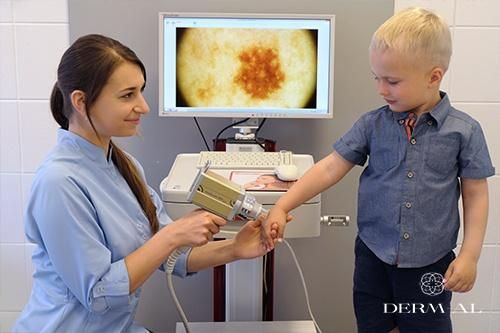Esperal implantation
- Description of the treatment
-
The Derm-Al Centre offers Esperal implantation as an additional method in alcohol addiction treatment.
Esperal (Disulfiram - implantation tablets) is a drug for forced alcohol abstinence. The therapy is founded on the fear of disulfiram reaction. If a patient drinks alcohol during the treatment, the reaction is the same as in food poisoning: nausea, vomiting, tachycardia, hypotension, dizziness, sudden reddening of the face, accompanied by a feeling of hotness. The intensity of the reaction depends on the amount of ethanol consumed and it may last 30-60 minutes to a couple of hours. As a result of disulfiram reaction, when ethanol concentration in blood exceeds 125–150 mg/100 ml, the following may happen: respiratory failure, cardiac arrhythmia, myocardial infarction, circulatory failure, loss of consciousness, convulsions or even death.
Esperal treatment should be accompanied by psychological therapy.
How does the procedure work
The procedure is painless and performed in local anaesthesia with 1% or 2% Lingocaina. An incision is made in the skin, usually in the upper part of a buttock, and the preparation is implanted into tissues. Stitches are applied on the incision, and the patient is asked to report for their removal in about one week.The area of the body where esperal was implanted should not be exposed to injury or contamination. It is recommended to cleanse the area with betadine, using a sterile gauze pad, and change the dressing every day - apply a new, sterile dressing, e.g. Cosmopor.
During Esperal treatment, i.e. from the moment of implantation for around one year, it is forbidden to drink any alcohol. Alcohol consumption may cause life-threatening reaction. Also, products that may contain alcohol should be avoided, such as mouthwashes, cough syrups, warming products, after-shave lotions and other. Contraindications for the procedure:
- alcohol consumption less than 48 hours before the procedure,
- hypersensitivity to Disulfiram, thiocarbamates or any of the ingredients of the preparation,
- circulatory system disorders (heart failure, coronary artery disease, hypertension, history of peripheral circulatory failure),
- coagulation disorders,
- kidney failure,
- liver failure,
- respiratory system disorders,
- diabetes,
- epilepsy,
- mental disorders, psychoses (except a history of acute alcohol-related psychoses),
- pregnancy,
- allergy to local anesthetics,
- allergy to local anesthetics,
- taking anticoagulant medications: (e.g. Aspirin, Polopiryna), Warfin, Sintrom, Acenocumarol, Clexane, Plavix.
-






